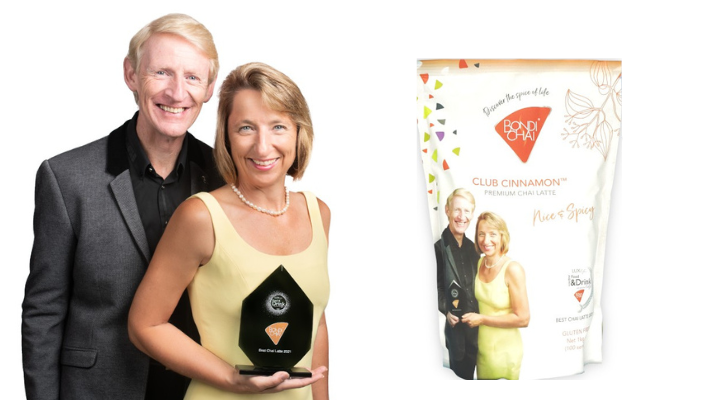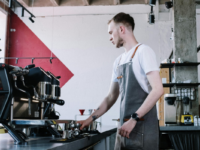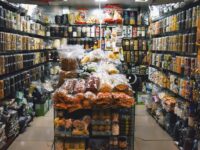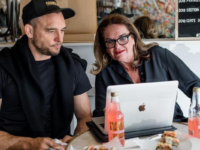Bondi Chai has been around for almost 25 years – and, as founder Martin proudly states, business has never once gone backwards. The small venture got its start when Martin and his wife and co-founder, Melissa, discovered chai latte on a trip to America. Enamoured with its sweet, spicy flavour, the pair started thinking about how they could introduce the chai latte to their home country of Australia.
Months later, they had two one-tonne palettes of the stuff on their hands – but sold 17 kilos in the first month. The problem? Chai lattes were unknown to virtually everyone in Australia.
“We weren’t in a marketing business, we were in an educational business,” says Martin of Bondi Chai’s early days in operation. “Fortunately at that time the Good Food and Wine Show was opening up. We took a two-by-two metre stand and we got smashed.”
At the Show, Martin and Melissa spent three days handing out 20mL samples out to guests. Samples have always been a crucial part of the business’ strategy, but this was especially true at the beginning.
“We resolved to be at every opportunity we could get,” says Martin. “It’s impossible to describe what it’s like to drink chai, so we resolved to get as many samples as we could out there…In one day at the Aroma Festival, we had 10 people on a stand and we gave out 17,000 of these things across seven hours.”
Going global
Bondi Chai is a perfect example of a small business going big – very big – on exporting. Their products are available in countries around the world, from Singapore to Saudi Arabia.
The secret? Almost everything is outsourced, meaning it’s very easy to have employees anywhere, and for Martin and Melissa to work from where ever they need to – or desire to.
“Our business model was very easy to export,” Martin says. “You just had to find distributors overseas, someone who was good at importing.”
Getting the products into other countries is another story altogether. The bane of Martin’s existence are non-tariffs barriers to entry, he says.
“Every single country has their own particular angle that they want to stop you with,” he says.
Even with every piece of paperwork sorted – certificates of origin, health certificates etc. – there was always something holding them back. Different ports in the same country can have different success rates: Martin says he has a container of Bondi Chai that has been stuck at a Chinese port since July 2024. Meanwhile, products that arrived at the same time to other Chinese ports have long-since been delivered.
Tips for overcoming export challenges
Over their years in business, Martin and Melissa have become exporting experts. Though not everything goes their way, they’ve learnt what works and what doesn’t.
“If it’s possible to be empathetic [to border security], you should be,” says Martin. “Your product is in competition with something their country already has. It’s usually just a matter of having everything sorted, then patiently working through all of their questions.”
If you’re an FMCG business, you’ll often be asked questions at borders about your product’s recipe and ingredients. One of Martin’s exporting issues is that the questions he gets asked at customs often get close to proprietary information.
“Our recipe is the single barrier to entry for our competition,” he explains. “I’ve fought them on a number of occasions about that.”
Over the years, he and Melissa have learnt to lean on Austrade and the Department of Primary Industry to get endorsements for customs overseas. This way, they don’t have to reveal their business’ secrets.
If you’re worried about having all of your documentation sorted, and don’t have the years of experience behind you that Martin and Melissa do, don’t fret – there are people who can help you get your ducks in a row. But for the owners of Bondi Chai, knowing the ins and outs themselves has been a massive boon.
“We will farm nothing out until we fully understand it ourselves,” says Martin, “We understand every part of our business so implicitly that it would well be our business. We visit the packaging plant, our third-party logistics company, manufacturers…they’re our best friends.”
When it comes to the business success, Martin points to the product’s universality and the business’ flexible nature.
“We chose this business because it didn’t have any challenges,” he laughs. “But [growth] was never an exponential curve. More a series of curves going upwards.”















